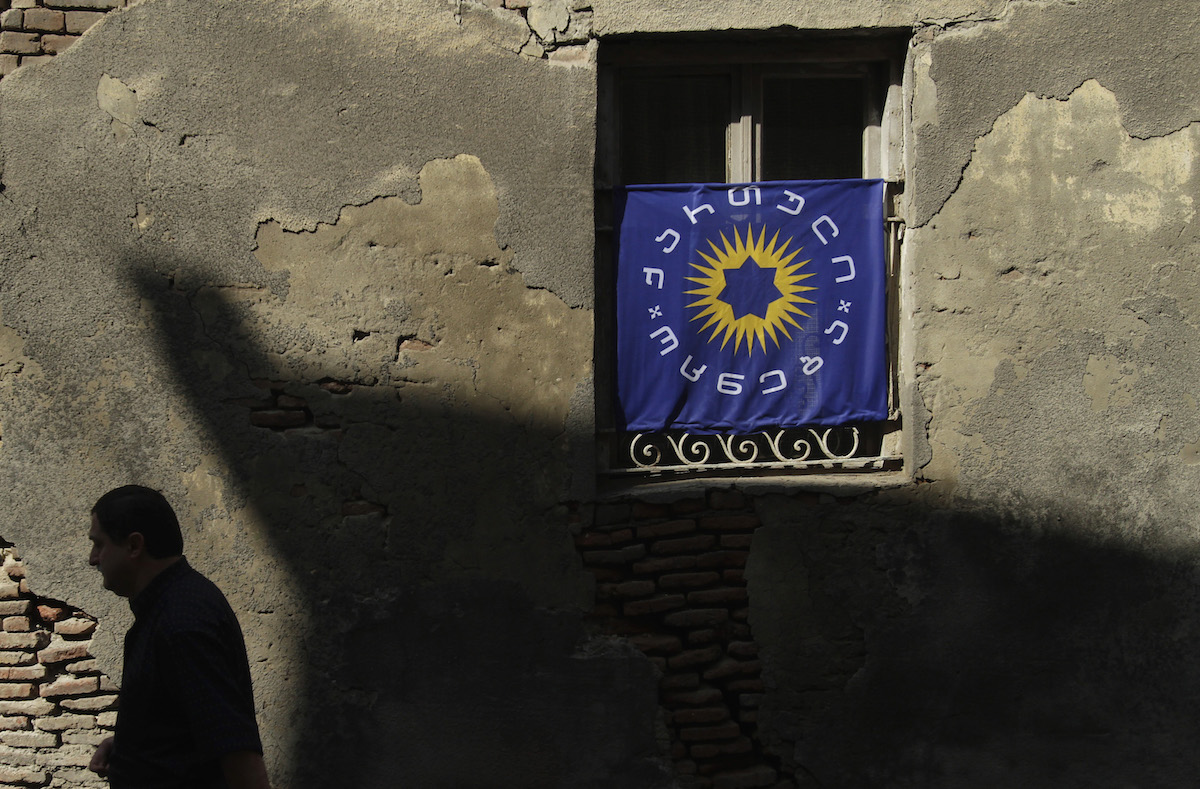Debts of 600,000 Georgian citizens to be cleared just before second round of presidential elections

About 600 thousand Georgian citizens who have debts and are on the country’s so-called financial ‘black list’, will be relieved of their financial obligations and will have their debts cleared.
The decision was made by the Georgian authorities just nine days before the second round of the presidential elections.
Prime Minister Mamuka Bakhtadze personally informed voters regarding the decision.
• Why Georgian politicians are picking on banks
• Centuries-old trees – the billionaire’s latest temptation
Bakhtadze stated that the amount of debt the government plans to write off is about 1.5 billion lari ($560 million), and the Cartu Foundation, owned by former prime minister and current chairman of the ruling Georgian Dream party Bidzina Ivanishvili, will assist in covering the amount.
Georgia did not elect a president in its first round of voting on 28 October. The second round is scheduled for 28 November.
The voting results in the first round between pro-government candidate Salome Zourabichvili and the leader of the united opposition, Grigol Vashadze, were almost equal – 38.64 per cent and 37.73 per cent respectively.
Bakhtadze stressed that the idea of clearing the debt was Bidzina Ivanishvili’s.
When will the process begin and who will it apply to?
The debt cancellation process will begin on 15 December and end on 31 December.
Most debtors do not owe more than 2,000 lari. Only those who owe less than this sum will have their debts cleared.
Debts with organisations that issue online loans and other such institutions will also be covered in the debt cancellation programme.
However, Finance Minister Ivane Machavariani later reported that not all financial institutions have agreed to the idea. For example, Vivus, one of the largest online loan companies, refused to participate in the programme. Debts undertaken with this company will not be cleared.
Bakhtadze says that of the 600,000 people who will benefit from this, approximately 150,000 are socially vulnerable individuals, and that tens of thousands of people who have disabilities can not pay off small bank loans.
Credit goes to Bidzina Ivanishvili, the Cartu Foundation and UNICEF
Bakhtadze said that the debt cancellation programme was an important step, one which will relieve the heavy burden of hundreds of thousands of families.
He further said that Ivanishvili was the first to speak out about the existence of the problem when he decided to return to politics earlier this year.
Bakhtadze also thanked the Cartu Foundation which is owned by Ivanishvili: “I would like to express my sincere gratitude to the charitable Cartu Foundation, without whose support such an important initiative could not be implemented.”
Bakhtadze further justified the importance of the debt clearance plan, referring to the latest research done by UNICEF:
“The UNICEF study directly showed the relationship between excessive debt and poverty, and that the burden of debt is so heavy for many families in Georgia that it has a negative impact, including on the development of children and adolescents.”
“Banking and non-banking sectors recognise the plan of the authorities.”
Bakhtadze said that long and complicated negotiations were held with representatives of both the banking and non-banking sectors prior to approving the plan:
“Most of the negotiators, including so-called debt collection bureaus, agreed with the proposed action plan, displaying high social responsibility, which allowed us, finally, to adopt a plan that would alleviate the plight of hundreds of thousands of families.”
United opposition: “The authorities took our initiative.”
United opposition leader Giorgi Vashadze commented on the government programme:
“We have been developing a similar plan for a long time and have been talking about the stagnation of the domestic economy. The economy, in our opinion, is not developing because of a misguided state policy that has ruined and driven those people who are economically active into debt pits.”
He believes that the authorities took the decision to cancel the debts out of fear of losing the second round of the presidential election.
“The authorities’ plan to clear the debts of people who are on the blacklist contains elements of voter bribery, and the prosecutor’s office should address this issue.”
Transparency International Georgia employee Levan Natroshvili says: “The authorities’ plan to clear the debts of people who are on the blacklist contains elements of voter bribery, and the prosecutor’s office should address this issue. Other influential NGOs support this move. According to the Georgian legislation, such actions are unacceptable during the election period … and we are talking about such a significant number of people that the actions of the authorities are capable of influencing the election results.”



















